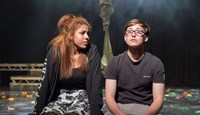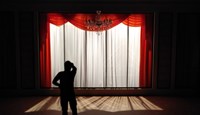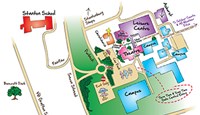- News
- The-Joy-Of-Pantomime
The joy of pantomime

Why is it do you suppose that for one time in the year all the usual theatre practices and expectations of behaviour from our audiences fly out of the window?
Yes for several weeks the theatre auditorium rings to the shrieks of children and noisy ripostes as they are actively encouraged to make responses. Sweets are thrown - and yes before you ask - we do have to risk assess it! All in the name of that great British Tradition - Pantomime.
Pantomime has its roots in a type of traveling street theatre called Commedia dell'arte which came from Italy in the 16th century. Commedia is a very physical type of theatre that uses dance, music, tumbling, acrobatics and buffoonery. Victorian pantomime slowly evolved to look like the pantomime we know today. The Harlequinades eventually died out and pantomime stories such Cinderella began to dominate. By the middle of the 19th century, pantomime had become so popular that it extended over the whole evening's entertainment, sometimes lasting as long as five hours. Pantomimes also became more and more elaborate, with spectacular scene changes, beautiful costumes and huge casts. Sometimes 600 actors would perform in one pantomime in the same evening. The most elaborate Victorian pantomimes were at Drury Lane Theatre in London. Principal Boys and Pantomime Dames evolved to become the new stock characters of pantomimes as it also began to be associated much more with children and Christmas.
Perhaps it was the inclusion of music hall stars in the early 1900’s, who would be used to encouraging audiences to respond, that first generated the tradition that today has even adults shaking off any inhibitions and shouting themselves hoarse. Suffice to say it's the one time when the stiff upper lip is abandoned in favour of the chants of 'It's behind you!' and so on. No one is going to turn round from the seat in front and hiss at you to 'be quiet' neither will you be asked to leave for causing a disturbance.
A strange thing indeed and like many things peculiarly British...Oh no it isn't ....Oh yes it is..................








Conversations